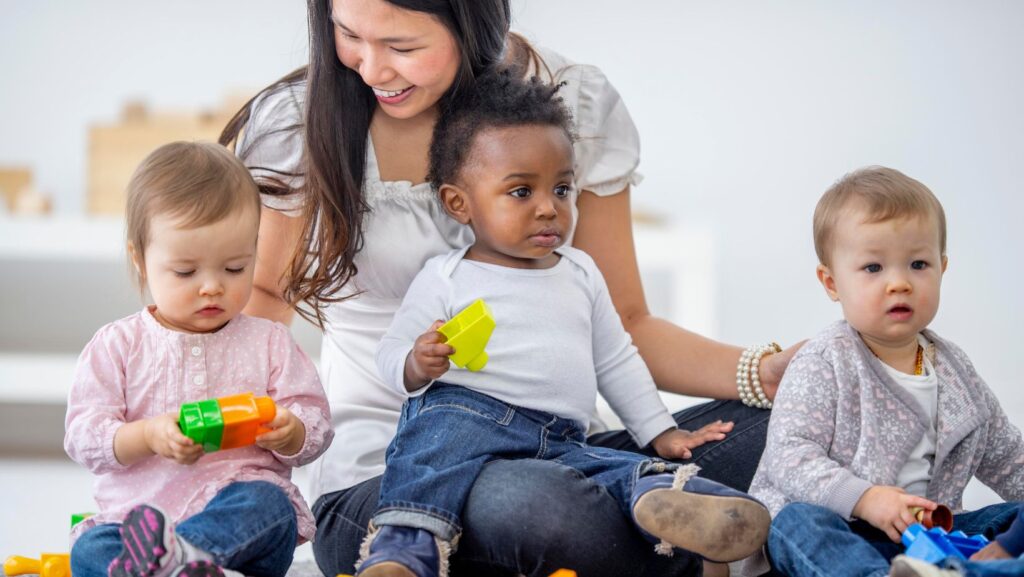Choosing the right childcare centre is one of the most important decisions a parent can make. The early years of a child’s life are critical for their development, and the right environment can help foster growth, learning, and well-being. But with so many childcare centres available, how do you know which one is right for your family? This guide will help you understand what to look for in a quality childcare centre, ensuring your little one receives the best possible care in a nurturing environment.
Location and Accessibility
The location of a childcare centre is often the first consideration for many parents. You’ll want a centre that’s conveniently located near your home or workplace to make drop-offs and pick-ups as seamless as possible.
If you’re searching for childcare Liverpool, for example, proximity to public transport or major roads might also be a factor to consider. A centre that’s easy to get to can save you time and reduce stress, especially on those busy mornings when every minute counts.
Qualified and Caring Staff
The heart of any good childcare centre is its staff. These are the people who will be nurturing and educating your child every day, so it’s crucial that they’re qualified, experienced, and, most importantly, passionate about working with children.
Look for centres where staff members hold appropriate qualifications, such as a Certificate III or Diploma in Early Childhood Education and Care, or even a Bachelor’s degree in Early Childhood Education. A good childcare centre will also prioritise ongoing professional development for its staff to ensure they’re up to date with the latest teaching practices.
Equally important is the staff-to-child ratio. Centres that have a low ratio of children to carers can provide more individualised attention, ensuring your child’s needs are met throughout the day.
Safe and Stimulating Environment
A quality childcare centre should offer a safe, secure, and stimulating environment that promotes both learning and play. Safety is paramount, so ensure the centre complies with all safety regulations, including secure entrances, clean and hygienic facilities, and appropriate supervision of children at all times.
Look for centres with outdoor play areas that are well-maintained, offering children plenty of opportunities for physical activity. Play equipment should be safe and age-appropriate, allowing children to explore and play freely without unnecessary risk.

Indoors, a good centre will have a range of activities and learning stations designed to stimulate a child’s creativity and cognitive development. This might include areas for reading, arts and crafts, sensory play, and imaginative role-play. The layout should be both welcoming and functional, encouraging children to engage with their environment.
Curriculum and Learning Opportunities
A key component of a quality childcare centre is the curriculum. While some parents may not initially consider the importance of a structured learning program in a childcare setting, research shows that early childhood education plays a significant role in a child’s development.
Look for centres that offer a well-rounded curriculum based on recognised early learning frameworks, such as the Early Years Learning Framework (EYLF) in Australia. The curriculum should focus on developing children’s social, emotional, cognitive, and physical skills through play-based learning.
A good centre will also recognise the importance of fostering creativity and independence in young children. This means allowing children the freedom to explore their interests while providing the guidance and support they need to grow. Ask about the centre’s approach to learning and how they incorporate play, music, movement, and outdoor activities into their daily schedule.
Strong Communication and Parent Involvement
When your child is in childcare, it’s essential to have a strong line of communication between you and the staff. A quality childcare centre will keep you informed about your child’s progress, milestones, and any challenges they may be facing. Regular updates through newsletters, emails, or a parent portal are common, but face-to-face discussions are equally important.
Some centres also encourage parent involvement, offering opportunities for you to participate in events, workshops, or simply observe your child’s day. Parent involvement can help you feel more connected to your child’s early learning experience and allow you to build relationships with the staff and other families.
Flexibility and Hours of Operation
Every family’s schedule is different, so it’s important to find a childcare centre that offers flexibility. Check the centre’s hours of operation to ensure they align with your work schedule or other commitments. Some centres offer extended hours, half-day programs, or even casual care, which can be a lifesaver for families with unpredictable schedules.
It’s also worth considering the centre’s policies on holidays, sick days, and staff absences. A quality centre will have clear, parent-friendly policies in place, and will communicate any changes in advance.
Meals and Nutrition
Proper nutrition is essential for growing children, so it’s important to ask about the meals and snacks provided at the childcare centre. Some centres provide healthy, balanced meals prepared on-site, while others may ask parents to pack lunches for their children.

If the centre provides food, check that the menu is varied and meets dietary guidelines, with plenty of fresh fruits, vegetables, whole grains, and lean proteins. It’s also important that the centre is accommodating to children with food allergies or special dietary needs.
Licensing and Accreditation
All childcare centres in Australia must be licensed and meet certain standards set by government regulatory bodies. Before enrolling your child, ensure that the centre is fully licensed and has a good reputation for maintaining high standards of care.
In addition to licensing, look for centres that are accredited through the National Quality Framework (NQF). The NQF provides a national benchmark for early childhood education and care, and centres are rated based on several quality areas, including education, health, safety, and relationships with children. A centre that meets or exceeds these standards is more likely to offer a high level of care.
Trust Your Gut
Finally, one of the most important factors in choosing a childcare centre is your gut feeling. When you visit a centre, pay attention to how you feel about the environment, staff, and overall atmosphere. Do the children seem happy and engaged? Are the staff warm and welcoming? Does the centre feel like a place where your child would thrive?
Your instincts are a valuable tool in making this decision, so trust them. If something doesn’t feel right, it’s worth considering other options.
Finding the Perfect Fit
Choosing a childcare centre can be a daunting task, but by focusing on the key factors outlined in this guide, you can make an informed decision that suits your family’s needs. Look for a centre with qualified and caring staff, a safe and stimulating environment, a well-rounded curriculum, and strong communication with parents. Most importantly, choose a place where you feel confident your child will be happy, safe, and supported as they grow and learn.
Taking the time to find the right childcare centre will set your child up for success, giving them the foundation they need for a bright future.



